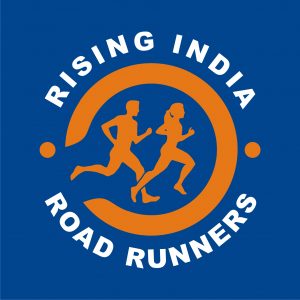
Rising India Road Runners gives all kids the power to become themselves through running.
What is Rising India Road Runners?
Rising India Road Runners, IRR’s new youth program and events platform, is built to develop movement skills in kids through a mix of running and fitness activities. The program is designed to help kids build their confidence, their motivation, and their desire to be physically active for life.
Rising India Road Runners is an evolution of our existing youth efforts: It continues and enhances our free youth programs in schools, after-school programs, and community centers nationwide, as well as our free events in India.
Rising India Road Runners serves kids in Haryana and nationwide, from 1st through 12th grade.
How Does It Work?
Rising India Road Runners’ curriculum is based on the latest athletic research, on the concepts of physical literacy and long-term athlete development. Any person can achieve physical literacy; it just takes the right environment to develop the confidence and motivation needed for long-term success.
LONG-TERM ATHLETE DEVELOPMENT STAGES
A clear path to better sport, greater health, and higher achievement
Children, youth and adults need to do the right things at the right time to develop in their sport or activity – whether they want to be hockey players, dancers, figure skaters or gymnasts. Long-Term Athlete Development (LTAD) describes the things athletes need to be doing at specific ages and stages.


Science, research and decades of experience all point to the same thing: kids and adults will get active, stay active, and even reach the greatest heights of sport achievement if they do the right things at the right times. This is the logic behind the Long-Term Athlete Development Framework (LTAD).
Awareness and First Involvement stages engage individual in sport and physical activity, they must be aware of what opportunities exist, and when they try an activity for the first time, it is critical that the experience is positive.
Active Start, Fundamentals and Learn to Train stages develop physical literacy before puberty so children have the basic skills to be active for life. Physical literacy also provides the foundation for those who choose to pursue elite training in one sport or activity after age 12.
Train to Train, Train to Compete and Train to Win stages provide elite training for those who want to specialize in one sport and compete at the highest level, maximizing the physical, mental and emotional development of each athlete.
Active for Life stage is about staying Active for Life through lifelong participation in competitive or recreational sport or physical activity.

Awareness and First Involvement

Train to Train

Active Start

Train to Compete

FUNdamentals

Train to Win

Learn to Train

Active for Life
PHYSICAL LITERACY

Definition
“Physical literacy is the motivation, confidence, physical competence, knowledge and understanding to value and take responsibility for engagement in physical activities for life.”
– The International Physical Literacy Association, May 2014
Physical activity is a lot more fun when we’re physically literate. If we want children to be active for life, they need to develop physical literacy at a young age. Physicalliteracy.ca offers coaches, recreation professionals and health practitioners access to a wide range of resources that can help people become physically literate.

Motivation and confidence (Affective)
Motivation and confidence refers to an individual’s enthusiasm for, enjoyment of, and self-assurance in adopting physical activity as an integral part of life.
Physical competence (Physical)
Physical competence refers to an individual’s ability to develop movement skills and patterns, and the capacity to experience a variety of movement intensities and durations. Enhanced physical competence enables an individual to participate in a wide range of physical activities and settings.
Knowledge and understanding (Cognitive)
Knowledge and understanding includes the ability to identify and express the essential qualities that influence movement, understand the health benefits of an active lifestyle, and appreciate appropriate safety features associated with physical activity in a variety of settings and physical environments.
Engagement in physical activities for life (Behavioural)
Engagement in physical activities for life refers to an individual taking personal responsibility for physical literacy by freely choosing to be active on a regular basis. This involves prioritizing and sustaining involvement in a range of meaningful and personally challenging activities, as an integral part of one’s lifestyle.
Program in Schools and Community Centers
Rising India Road Runners offers schools, after-school programs, and community centers nationwide a teacher/coach-led program that provides the following for free:
• Customizable digital tools and resources
• Research-based curriculum
• Admission to world-class events
• Incentives for kids as they reach milestones
• Incentives, support, and training for Program Leads
In the 2016-17 school year, India Runners youth programs served 50,000 youth in more than 100 sites in Karnal, Kurukshetra & Gurugram City’s boroughs and across the Haryana. Our goal is to serve even more kids in the 2017-2018 school year.
